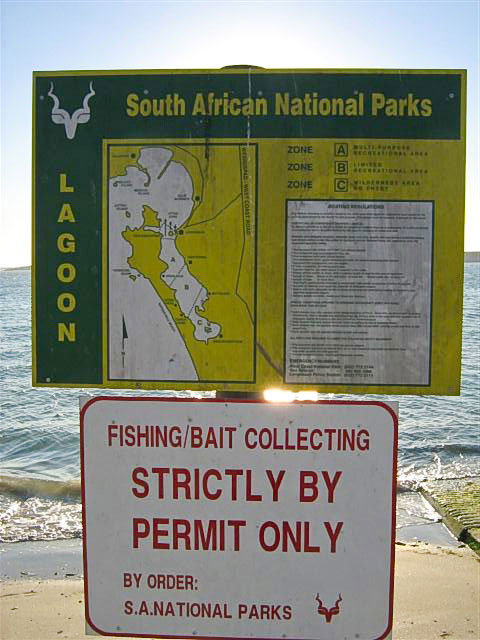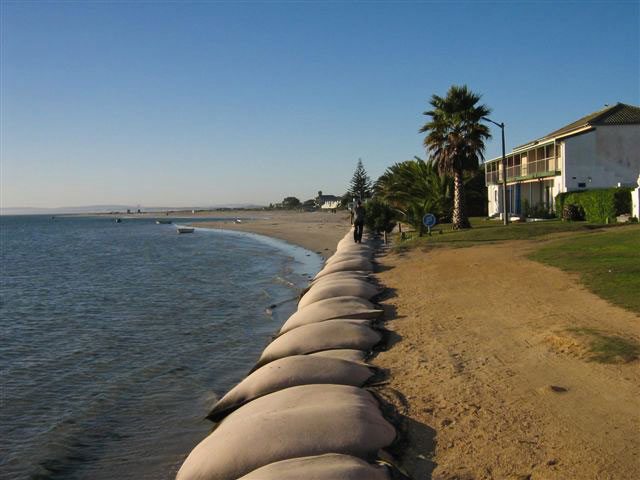With the 2010 World Shore Championships in South Africa just around the corner, Scotland team member, Iain Graham reveals the extent of his advance groundwork and the potential pitfalls of leaving match preparation to chance.
Fail to prepare, prepare to fail, or so the saying goes; but just how much should you prepare and how far ahead? And when does being well prepared turn into an obsessive disorder? The answer is that it is really a sliding scale proportionate to the fishing session planned. Planning and organising seems to have taken over my life recently as in November 2010 South Africa hosts the World Shore Championships… and I will be there.

The venue is Langebaan, a picturesque village situated in the West Coast Region of South Africa, 120km north of Cape Town on the shores of a saltwater lagoon. The lagoon is 4km wide in places, with bright blue waters stretch for some 17km from Saldanha Bay in the north past the village of Langebaan, to Gelbeek towards southern end. Originally a quiet fishing village it is now a popular destination for the water sports enthusiast, with fine fishing, diving, swimming and sailing all to be found. And from November 7 – 14, 2010, it plays host to anglers from around 20 countries for the 27th Men’s, and 18th Ladies’ CIPS World Shore Angling Championships.
My place in the international team to compete in the 2010 world shore event was confirmed way back in January of this year. With 10 months until the event there was ample time for me to get organised and for fishing preparation… wasn’t there? The remainder of January disappeared, with first team meeting taking place during February. Discussions centred on necessary domestic arrangements and start our event organisation.
Time is Short
Nine months remained and realisation of exactly what was required and still to be done really did begin to dawn. This was no club match or minor competition where you just grab your readied tackle box, do a quick bit of venue research on the telephone or internet, sort bait and off you go. No, the World Championships is on an altogether different proposition. We needed to get team finances, flights, cars, accommodation, sponsorship, clothing, practice bait, and tackle requirements sorted. And each item on the list begged a whole set of question to which we had few concrete answers at this point. Take tackle for example: What tackle would we need? What were we fishing for, and what size were the fish likely to be? Where exactly were we fishing, and what of the intricacies of those venues? The list seemed endless, with each answer posing other questions, and everything needed thorough research and verification.

Internet sites and forums were pillaged, friends phoned, angling contacts from around the world contacted to glean as much information as possible on the venues and required angling techniques. Team fact-finding efforts courted information overload, with papers, articles and advice coming in from all directions. Sometimes information proved contradictory, but all information had to be processed and filed just in case. I now sport a bulging A4 binder bursting with everything from Langebaan tides, to satellite photographs of all the possible match venues. And lists! I have lists of lists, in the reasonably sure knowledge that nothing obvious has been left to chance.
A Matter of Logistics
 Fishing venues thousands of miles away whilst not knowing the full range of possible species and tackle requirements presents some major logistical problems, particularly where tackle is concerned. Take something as seemingly nugatory as a hook – pattern suitability and size has to be taken into account, then you need enough of each size and pattern to last for 5 days of practice fishing plus 5 days of competition as it might not be available on location. Across the full range of required sizes, that can add up to an awful lot of hooks. Then there are various sinkers in a range of sizes, main lines, snood lines, rig building components, rods and reels. Failure to research all of this properly courts a very real danger of packing the equivalent of a small tackle shop full of the wrong gear, or too much crap to provide that ‘just in case’ neurotic mental security blanket.
Fishing venues thousands of miles away whilst not knowing the full range of possible species and tackle requirements presents some major logistical problems, particularly where tackle is concerned. Take something as seemingly nugatory as a hook – pattern suitability and size has to be taken into account, then you need enough of each size and pattern to last for 5 days of practice fishing plus 5 days of competition as it might not be available on location. Across the full range of required sizes, that can add up to an awful lot of hooks. Then there are various sinkers in a range of sizes, main lines, snood lines, rig building components, rods and reels. Failure to research all of this properly courts a very real danger of packing the equivalent of a small tackle shop full of the wrong gear, or too much crap to provide that ‘just in case’ neurotic mental security blanket.
At this is published the World Shore Championships are under two months away, and fingers crossed, preparations are now complete barring a few minor items. Group confidence is high in the knowledge that we have prepared as much as we can to maximise our fishing potential prior to the start of the event. If the team and I can arrive at the event relaxed then the next and final stage is for hard work, ability, belief and perhaps a little rub of the green to stir together and serve up a great result.
If there’s a wider lesson to be gleaned from my last few months of preparation gone mad then it can be summed up in the title of this piece. I’m not advocating that you go mad plotting and planning next year’s club matches – although many of the county’s top anglers will have done just that already – but you can obtain swathes of valuable knowledge by spending a little bit of time doing your homework prior to a fishing session. Rewards will soon come on the beach, or boat for that matter. In this modern age of information availability there is absolutely no excuse for failing to prepare.

